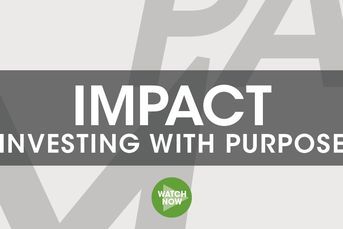Principal CEO scoffs at private equity in 401(k)s
Private equity funds are probably too complicated for the average investor's retirement account, according to Principal Financial Group Inc., which provides the plans to 3.8 million people.
Private equity funds are probably too complicated for the average investor’s retirement account, according to Principal Financial Group Inc., which provides the plans to 3.8 million people.
“When people start talking about ETFs and liquid alts and private equity and all of that stuff, I too chuckle a little bit,” Principal Chief Executive Officer Larry Zimpleman said on a conference call Friday in response to a question about including exchange-traded funds and other options in 401(k) plans. “It’s really hard to see how that is something that can be easily explained.”
Carlyle Group LP, Blackstone Group LP and KKR & Co. are among private-equity firms that have sought to increase their appeal to ordinary investors with an eye to managing a piece of the $4.2 trillion Americans held in 401(k) retirement plans. KKR this year closed two funds that targeted individuals in a setback to the push.
Mr. Zimpleman, 62, said it’s possible that private-equity and liquid alternative funds could find a place in target-date investment options. Target-date strategies provide an asset allocation that’s selected by the fund manager and typically becomes less risky over time.
Liquid alternatives can mimic hedge fund approaches while allowing investors to trade in and out of the holdings daily. They invest in assets including real estate and commodities and may wager on stock declines.
“Our role is to construct very solid, but also easy-to-understand” investment options, Mr. Zimpleman said. The average 401(k) investor is “focused on their job and their family,” he said. “They know they need to save, but they’re clearly not an investment expert.”
Locked Up
Private-equity investments are typically only available to clients with at least $5 million to commit. The money is usually locked up for about a decade, and the firms have a mandate to buy companies, improve their value, and sell them with a profit.
PE companies typically charge an annual management fee equal to 1.5 percent to 2 percent of committed funds and keep 20 percent of profits from investments. That compares with expense ratios of 1.23 percent on average for U.S. mutual funds, according to researcher Morningstar Inc.
Principal is the No. 10 record keeper for 401(k)-type plans, according to the latest data available from researcher Cerulli Associates. The Des Moines, Iowa-based company is also among the largest providers of investment options in the accounts.
Mr. Zimpleman was responding to a question from Eric Berg, an analyst at RBC Capital Markets, who asked about the future of an industry in which more money managers are competing for business.
“It boggles the mind, all the choices,” Mr. Berg said.
(Bloomberg News)
Learn more about reprints and licensing for this article.







